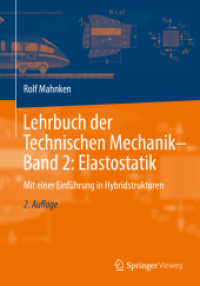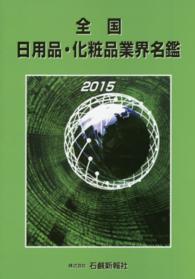Full Description
This innovative book traces the impact of tradition on modern humour across several Asian countries and their cultures. Using examples from Japan, Korea, Indonesia and Chinese cultures in Mainland China, Hong Kong and Taiwan, the contributors explore the different cultural rules for creating and sharing humour.Humour can be a powerful lubricant when correctly interpreted; mis-interpreted, it is likely to cause considerable setbacks. Over time, it has emerged and submerged in different periods and different forms in all these countries but today's conventions still reflect traditional attitudes to and assumptions about what is appropriate in creating and using humour. Under close examination, Milner Davis and her colleagues show how forms and conventions that differ from those in the west can also be seen to possess elements in common. With examples including Mencian and other classical texts, Balinese traditional verbal humour, Korean and Taiwanese workplace humour, Japanese laughter ceremonies, performances and cartoons, as well as contemporary Chinese-language films and videos, they engage with a wide range of forms and traditions.This fascinating collection of studies will be of great interest to students and scholars of many Asian cultures, and also to those with a broader interest in humour studies. It highlights the increasing importance of understanding a wider range of cultural values in the present era of globalized communication and the importance of reliable studies of why and how cultures that are geographically related differ in their traditional uses of and assumptions about humour.
Contents
1. Humour and cultural contextcultures 2. Humour as rhetorical discourse in ancient Chinese philosophy: The Works of Mencius 3. Humour in the huaben novellas of the Ming Dynasty: The Guzhang Juechen in context 4. Linguistic devices in traditional forms of Balinese humour 5. Pluri-modal poetic performance of banter: The Angama ritual on Ishigaki Island, Japan 6. Themes, cultural context and verbal exchanges in the cartoons of Machiko Hasegawa 7. The Makura of rakugo: Tradition and modernity 8. To joke or not to joke? Politeness, power and the impact of tradition in Korean workplace humour 9. Chinese conversational humour over time: Contemporary practice and tradition in Taiwanese cultures 10. We are real friends: Women constructing friendship via teasing in a Chinese reality TV show 11. My Unfair Lady: Gender, sajiao and humour in a Hong Kong TV series








